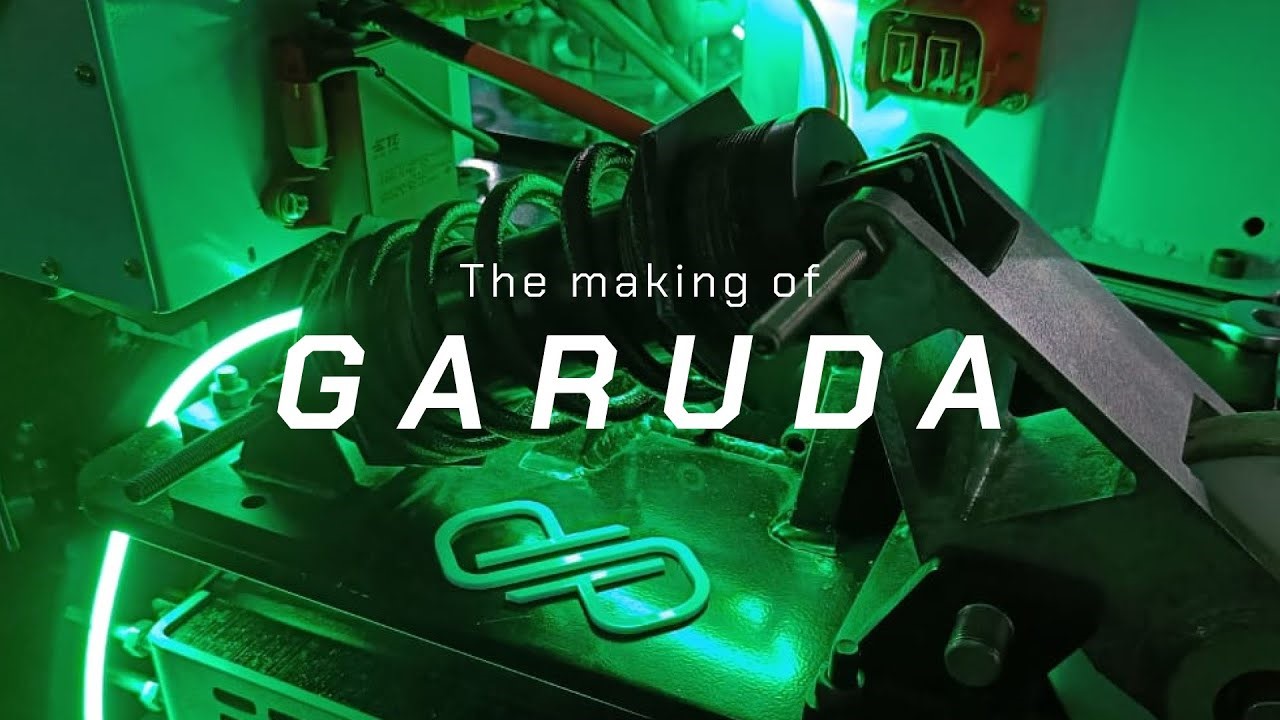

Talented students at the esteemed Indian Institute of Technology (IIT) Madras have sparked renewed enthusiasm for cutting-edge, high-speed transportation in India. Their groundbreaking project, 'Avishkar Hyperloop,' challenges traditional notions of inter-city travel by proposing a passenger pod that whisks through a vacuum tube at breathtaking speeds. The latest prototype, Garuda 6.0, boasts an integrated aluminium honeycomb and carbon fibre chassis.

The concept, born from Elon Musk's mind, is now being realised in India. The project gained even more attention when the Finance Minister, Nirmala Sitharaman, praised the young minds for their massive achievements on X (formerly known as Twitter). "Congratulations! Interesting. Wishing you all success in your future endeavours too," her tweet read. With the potential to complete a journey of 350 km in just 30 minutes, the possibilities for this technology are fascinating.
After gruelling days of uncertainty and many sleepless nights, the IIT Madras researchers were able to develop the 6.0 version, Garuda of the Hyperloop model. The first three 2.0, 4.0 and 5.0 versions did not have aluminium incorporated within, but the latest version comes equipped with a chassis that flaunts a sandwich structure made of carbon fibre reinforced polymer layers (CFRP) having an aluminium honeycomb core. This innovative design has reduced the weight of the pod by a significant percentage, making the Garuda lighter and more durable.
The aluminium honeycomb structure entwined with CFRP can withstand a load of almost 450 kg, which is approximately 2.4 times the weight of the entire pod. The shape of the chassis resembles an inverted 'U' so that it can retain its original structure withstanding critical air gaps.
For over six years, Avishkar has been dedicated to advancing Hyperloop pod technologies for India. His tireless efforts have resulted in the development of cost-effective and scalable solutions. Avishkar's pod, Garuda, features an in-house designed Linear Induction Motor that propels the pod, alongside serving as its primary braking system. The pod boasts bidirectional run capabilities and EMS levitation, all while maintaining a high lift-to-weight ratio and exceptional power efficiency. Autonomous embedded systems enable precise speed and direction control, as well as real-time data acquisition. This impressive technological feat will soon be put to the test within our very own 400m vacuum tube facility, ultimately proving the potential of Hyperloop.
It is clear that the 'Avishkar Hyperloop' project is the result of hard work and dedication from a team of more than 50 students, ranging from undergraduates to doctoral candidates at IIT Madras. This diverse collaboration has been crucial in pushing the boundaries of what was once just a mere concept. This technology has the potential to augment India's position in the global transportation circuit.
The team, led by the enthusiastic Medha Kommajosyula, has a vision of the project reaching full maturity within the next decade, provided that the current momentum is maintained. Notably, the Ministry of Railways has generously supported the project with a substantial grant of INR 8.34 crore last year. The proposal presented by IIT Madras, which highlighted a partnership to develop India's native Hyperloop system and its intricate subsystems, was the catalyst for this sponsorship.
The passion and dedication of the IIT Madras team are evident in their remarkable accomplishment. They are among the few student-led teams globally who have not only conceived but also tested their Hyperloop prototype in real-world conditions. India is making remarkable progress in embracing the future of transportation, with IIT Madras' young innovators leading the way. They are turning the dream of Hyperloop into a reality, bringing us closer to a future where distance is no longer an obstacle. The nation eagerly anticipates the day when this vision becomes a reality, changing the way we travel forever.
Responses








